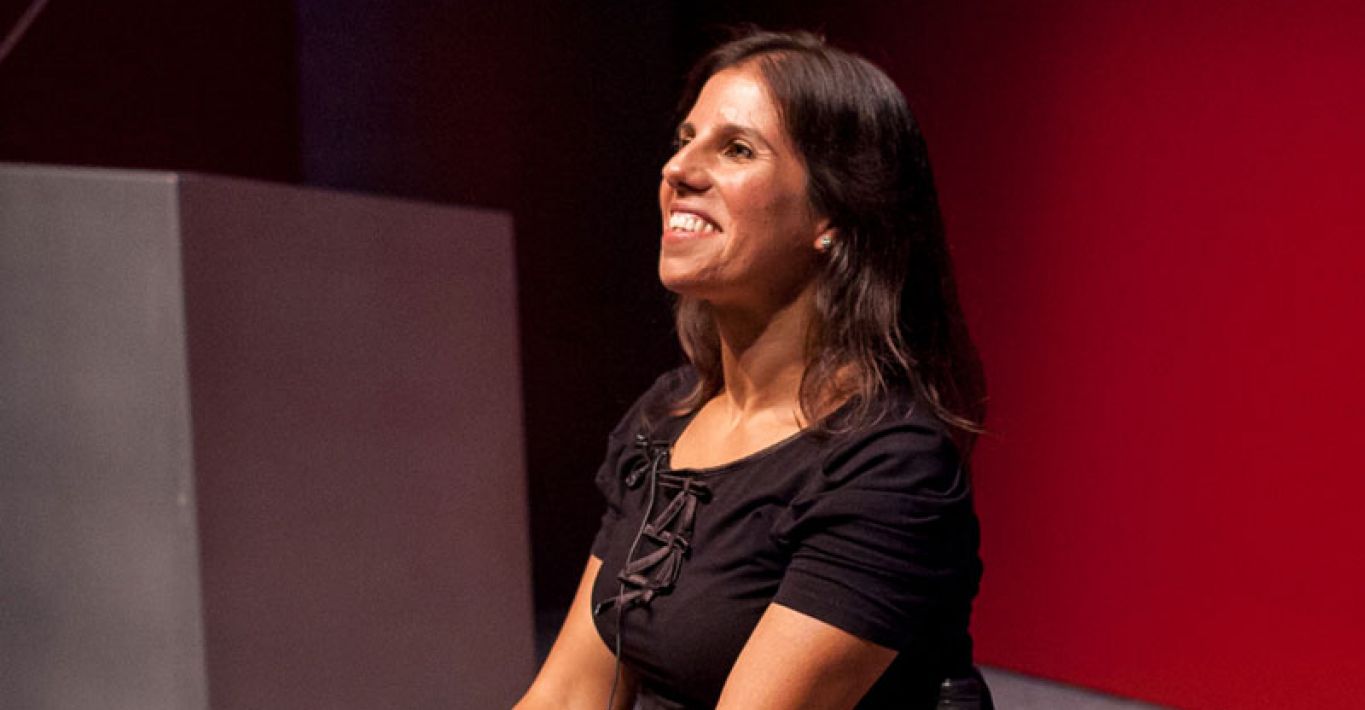When deciding on my career, I was strongly influenced by my dad, who’s now retired but was a lawyer; I wanted to be a lawyer from quite a young age. I did my law degree at Queen Mary University, qualified as a solicitor in 2003 and worked in the City for about 12 years, specialising in personal injury law – quite ironic given that I’m now a wheelchair user.
I was injured in 2008, when I was a lawyer. I still remember the date: 18 March 2008. I was 29 years old, vegetarian, had never smoked in my life, I was very fit and healthy and had never been in hospital before. I went to bed one day, and within about two hours I couldn’t get out of bed, as my legs had stopped working. A neurologist told me I’d had a spinal stroke and would need to use a wheelchair for the rest of my life.
I always say I was the first disabled person I met, so I didn’t understand how to be in this world. I took about a year off work to go through rehabilitation to learn how to use a chair. It’s not just the not walking; when you’ve got a spinal cord injury, as I have, everything changes. Your body is different, and it takes a while to learn how to use that body in a different way.
The psychological effect of questioning ‘what do I now bring to a workplace?’, ‘how do I go about my daily life?’, ‘will I ever meet anyone and have relationships?’, and ‘are people going to want me?’ is awful. And I was really trying to grapple with my identity; I didn’t even know who I was anymore.
The psychological side is a lot bigger than the physical challenges, not only because of how you see yourself, but how other people see you. You have the problem of feeling either invisible, or hypervisible – having a visible disability so people have a lower expectation of you, or people assume you need help all the time.
I did eventually go back to work, and I was still working in that law firm when I started Diverse Matters four years ago, a specialist training consultancy for organisations and people to approach diversity and disability (both visible and non-visible) with confidence and strength. Diversity and inclusion is talked about a lot, but we rarely talk about disability as part of that. We mainly talk about gender equality, LGBT and BAME. If disability is mentioned, most organisations don’t know where to start.
One of my bosses was global HR director at the time, and he realised I was really passionate about this subject, so we set up a disability network, he got me blogging about disability, having conversations about disability in the workplace, and he really made me believe in myself. When I start talking to organisations, I realise there’s a problem, as they don’t know how to put disability on the diversity agenda. They don’t know how to start the conversation and they’re scared of it. But when I start to talk about it, people are really interested and keen to learn, so I’ve had to realise that what I’m doing is of value and that I’ve got a lot to give.
I recently got into stand-up comedy, and I coach people in public speaking, so I’ve been using ‘how to insert humour into presentations’ in corporate settings. I think a lot of the time, the way people tell stories or do a presentation at work using PowerPoint, is not engaging, and I’m trying to make it more appealing and entertaining. Sometimes even the driest and most serious stuff can be interesting, and you can use humour where appropriate. I also worked with the BBC and did a panel discussion with scriptwriters, directors and people telling stories in film and documentaries about disabled people with both visible and non-visible disabilities. It was interesting to examine these narratives and who’s telling them, and how they’re telling them, as we want to see stories that actually reflect people’s lives, because it’s more relatable.
This is how I met my husband, who is a wheelchair user and was doing some acting in Casualty. The storyline was that he killed himself because he was a wheelchair user. I looked at this thinking, ‘great, is this what it is?’ Everything was about his disability, everything about his life. And this does impact the way we talk to people and feel about them, because that’s what we see. Now, he’s got storylines where people just happen to have a disability; it doesn’t define them.
While there are many challenges, if I didn’t have this disability, I wouldn’t have done a lot of things in my life, including Diverse Matters, which gives my life a lot of meaning and adds value to other people’s lives and their organisations. I look at it that way.




